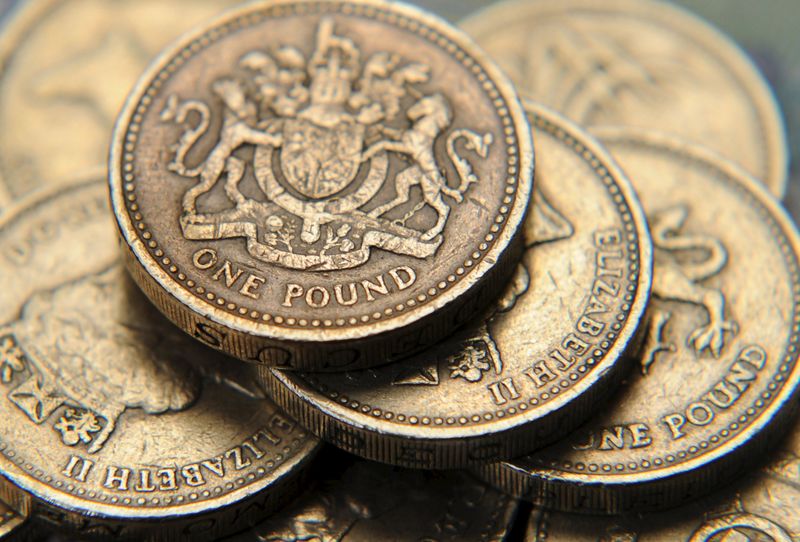Investing.com - The pound rose against the U.S. dollar on Friday, but gains were expected to remain limited by the release of mixed U.K. economic reports and as demand for the greenback remained broadly supported.
GBP/USD hit 1.4306 during European morning trade, the pair’s highest since January 19; the pair subsequently consolidated at 1.4284, gaining 0.46%.
Cable was likely to find support at 1.4078, Thursday’s low and a seven-year low and resistance at 1.4341, the high of January 19.
The U.K. Office for National Statistics said retail sales declined by 1.0% in December, confounding expectations for a 0.3% slip, after a revised 1.3% increase the previous month. Year-on-year, retail sales rose 2.6% last month, disappointing expectations for a 4.3% gain.
Core retail sales, which exclude auto sales and fuel, fell 0.9% in December, compared to expectations for a 0.3% downtick and after a revised 1.3% increase in November.
A separate report showed that U.K. public sector net borrowing rose by £6.87 billion in December, less than the expected increase of £10.35 billion. Public sector net borrowing climbed by £12.94 billion in November, whose figure was revised from a previously estimated gain of £13.56 billion.
Meanwhile, the difference in monetary policy stances between the European Central Bank and the Federal Reserve continued to lend support to the greenback.
The U.S. dollar strengthened broadly after ECB President Draghi said on Thursday that it would be necessary to “review and reconsider” the bank’s monetary policy at its next meeting in March, when new economic projections become available.
Adding to these comments on Friday morning, Draghi said the bank has “plenty of instruments” to reach price stability in the euro area and that it has “the determination, the willingness and the capacity of the Governing Council to act and deploy these instruments.”
Sterling was also higher against the euro, with EUR/GBP declining 0.73% to 0.7590.
Earlier Friday, research group Markit said its preliminary German manufacturing purchasing managers’ index ticked down to 52.1 in January from 53.2 the previous month. Germany’s services PMI fell to 55.4 from 56.0.
The French manufacturing PMI slipped to 50.0 this month from 51.4 in December, while the services PMI rose to 50.6 from 49.8.
For the entire euro zone, the composite PMI, which includes manufacturing and service sector activity, ticked down to 53.5 in January from 54.3 in December.
